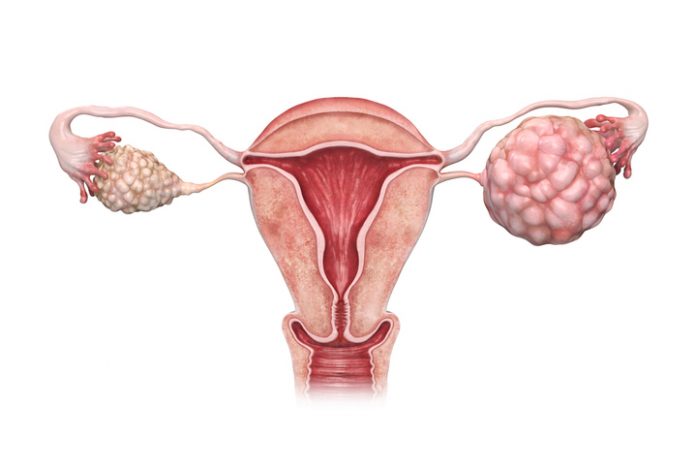
A small clinical trial conducted by investigators at Ludwig Cancer Research has shown that a treatment regimen for advanced ovarian cancer patients by combining adoptive T cell therapy (ACT) with a personalized cancer vaccine doubled overall survival time in patients.
The research, detailed Thursday in Nature Cancer, was led by Sara Bobisse, Alexandre Harari, and Lana Kandalaft of the Lausanne Branch of the Ludwig Institute for Cancer Research, which has been developing the vaccine used in the trial. Ludwig Lausanne director George Coukos analyzed responses to the combination therapy of 18 patients with advanced ovarian cancer. The small cohort of patients had previously participated in a clinical trial evaluating a therapeutic regimen that incorporated the personalized cancer vaccine. The findings showed that in 12 of 17 patients, the combination treatment showed control of the disease within three months and demonstrated that therapy was safe and relatively well tolerated by the patients.
“This treatment could not eliminate tumors, but it did provide considerable benefit to many of the patients, who had all undergone extensive treatment prior to enrolling in the trial and were in the late stages of the disease,” said Kandalaft.
The new research could signal a breakthrough in the use of an immunotherapy approach to treating ovarian cancer, which to date has proven to be mostly resistant to this therapeutic approach. Ovarian cancer cells, however, do express neoantigens that are needed for the immune system to launch a tumor fighting T cell response. The Lausanne team’s approach to target these neoantigens, under development of the past 12 years by Kandalaft and Coukos, is the personalized dendritic cell vaccine.
The vaccine is made by using precursor immune cells gathered from patients and coaxing them to turn into dendritic cells. Dendritic cells present cancer antigens to killer T cells to activate and direct their response against the tumors. The dendritic cells are expanded in culture and are “pulsed” with an extract of cancer cells taken from the patient’s tumor that have been chemically treated to improve uptake and processing antigens by the culture immune cells. This is then injected into the patient’s lymph nodes which is where dendritic cells activate the T cells to fight the tumor.
The patients were treated with a therapeutic regimen that had shown promise in the earlier clinical study: the personalized dendritic cells vaccine and bevacizumab, an ovarian cancer treatment that targets VEGF-A. VEGF-A has been shown to promote blood vessel formation while also hampering the entry of killer T cells into the tumor. Patietns also received low doses of chemotherapy whose purpose was to clear the lymph nodes in order to make room for the personalized newly infused T cell. A component of the chemotherapy, cyclophosphamide, also suppresses regulatory T cells, which inhibit killer T cell responses.
In the current study, patients received chemotherapy followed by ACT using vaccine-primed T cells that were expanded in culture in the presence of stimulatory immune factors. The ACT was followed by several cycles of vaccination.
While their research was not a double-blind, placebo-controlled trial, the team’s findings suggest the benefits of the combination therapy were significant: the median overall survival time of patients who completed the regimen was 14.2 months, compared to a median historical survival of six months or less for comparable patients receiving fourth- and fifth-line chemotherapy.
“We were very happy that we could demonstrate how the combination therapy improved anti-tumor immune responses, and that those changes correlated to patient benefit,” said Bobisse. “Most notably, we could show that T cells targeting the neoantigens were reinvigorated by the combination therapy and correlated with positive responses to the therapy.”
Further, DNA sequences encoding neoantigens targeted by the T cells were found at higher levels in circulating tumor DNA, suggesting they had invited the destruction of tumor cells.
“This study illustrates how rational approaches to the design of immunotherapies can help overcome the barriers to immune responses that are erected by a variety of cancers, not least ovarian cancer,” said Coukos. “It has also taught us valuable lessons that we will be sure to apply to improve the efficacy of personalized cancer immunotherapies we’re developing here at Ludwig Lausanne.”












